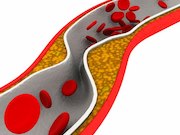
TUESDAY, July 10, 2018 — Low-income families that include a member with atherosclerotic cardiovascular disease (ASCVD) have increased odds of high financial burden and catastrophic financial burden, according to a study published online July 3 in JAMA Cardiology.
Rohan Khera, M.D., from the University of Texas Southwestern Medical Center in Dallas, and colleagues conducted a cross-sectional study of the Medical Expenditure Panel Survey from January 2006 through December 2015 to examine the annual burden of total out-of-pocket health expenses among low-income families that included a member with ASCVD. A total of 22,521 adults with ASCVD, represented in 20,600 families, were identified.
The researchers found that the mean annual family income was $57,143, with mean out-of-pocket expenses of $4,415. Throughout the study there was a decrease in financial burden from health expenses; however, even in 2014 and 2015, low- versus mid/high-income families had increased odds of high financial burden (21.4 versus 7.6 percent; odds ratio, 3.31) and catastrophic financial burden (9.8 versus 1.2 percent; odds ratio, 9.35). In 2014 and 2015, even among the insured, 1.6 million low-income families nationally (21.8 percent) experienced high financial burden and 721,000 low-income families (9.8 percent) experienced catastrophic out-of-pocket health care expenses.
“To alleviate economic disparities, policy interventions must extend focus to improving not only access, but also quality of coverage, particularly for low-income families,” the authors write.
One author disclosed financial ties to the pharmaceutical and medical device industries.
Abstract/Full Text
Posted: July 2018
Source: Read Full Article
